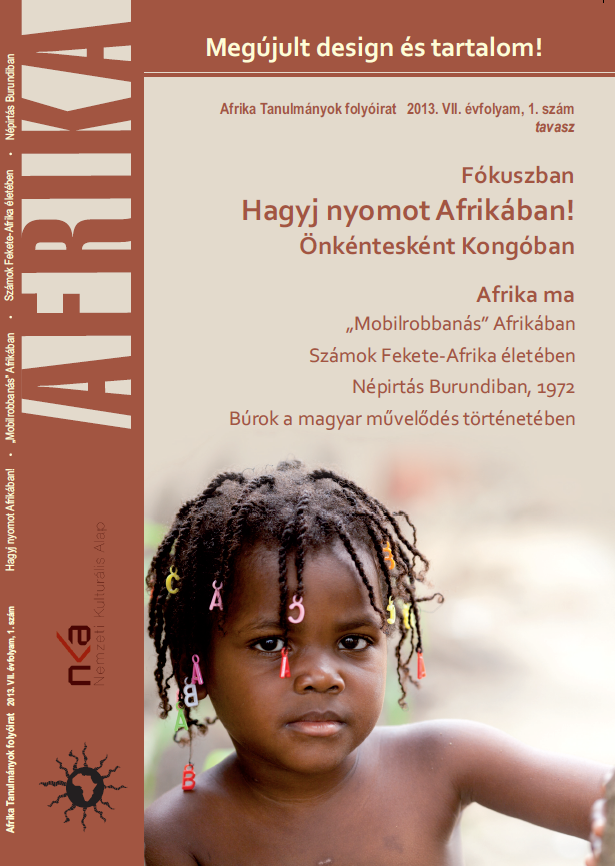Genocide in Burundi, 1972
Keywords:
Burundi, Tutsi, Hutu, Simbananiye Plan, Ethnic conflict, JRRAbstract
Twenty-two years before the devastating 1994 genocide in Rwanda, the Great Lakes Region of Africa already had to face a similar bloodshed in Burundi. From May to July in 1972, in a disproportionate retaliation campaign of the mostly Tutsi army in reaction to a Hutu insurrection in the south part of Burundi 200.000 to 300.000 hutu civilians were killed. The Tutsi elite leading the country for the next twenty years never acknowledged the genocide, nor did they investigate it. This „calculated amnesia”was reinforced by the indifferent attitude of the international community, practically ignoring what was going on in the small African country.
Although the „official” history of Burundi tends to forget it, the 1972 genocide is a deep wound in the collective memory of the Hutu people, and through the imminent refugee influx in neighbouring countries and the radicalisation of these refugees, it largely contributed to the recurring violence of the Great Lakes Region of Africa.
Downloads
Published
How to Cite
Issue
Section
License

This work is licensed under a Creative Commons Attribution-NonCommercial-NoDerivatives 4.0 International License.
















